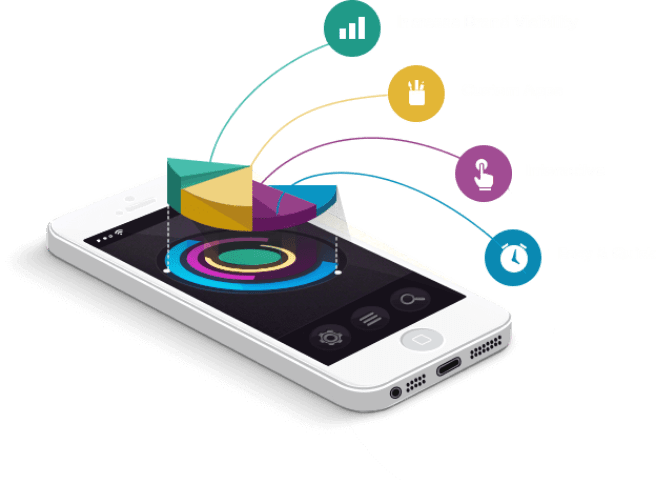In today’s mobile-first world, a well-crafted iOS application can transform your business, boost customer engagement, and significantly improve your ROI. But building a high-quality iOS app is not a DIY task—it demands expertise, technical know-how, and a clear understanding of Apple’s ecosystem. That’s why hiring a reliable iOS mobile app development company is critical. This guide will walk you through the key factors you must consider to make the right choice.
Why iOS App Development Matters
Apple’s iOS remains one of the most powerful mobile platforms globally. With a loyal user base, secure environment, and consistent performance across devices, iOS offers businesses the opportunity to reach high-value customers.
Advantages of iOS for Businesses
-
High security and data privacy
-
Better app revenue and in-app purchase potential
-
Loyal and premium user base
-
Consistent hardware and software environment
1. Define Your App Goals First
Before reaching out to a development company, clearly define your project objectives, target audience, and key features. This will help you:
-
Communicate your vision effectively
-
Set realistic budgets and timelines
-
Evaluate if a company aligns with your project needs
2. Evaluate the Company’s Experience and Portfolio
A strong portfolio is one of the most telling signs of a capable iOS app development company. Review their previous iOS projects to evaluate:
-
App quality and performance
-
User interface design
-
App store ratings and reviews
-
Diversity across industries or use-cases
Look for companies that have worked on projects similar to your idea or industry. A team familiar with your niche can accelerate the development process and reduce learning curves.
3. Check Technical Expertise and Tools
The company must be proficient in the latest iOS development technologies, programming languages, and Apple guidelines.
Must-Have Technical Skills:
-
Swift and Objective-C
-
Xcode IDE
-
iOS SDK, Core Data, Core Animation
-
APIs, third-party integrations, and backend development
-
Familiarity with Apple’s Human Interface Guidelines (HIG)
Also, ask if they use version control (like Git), testing frameworks, and CI/CD pipelines to ensure clean code and faster delivery.
4. Focus on UI/UX Capabilities
Apple users expect sleek design, seamless navigation, and intuitive interfaces. Your app’s UI/UX design will heavily influence adoption rates and reviews.
Ask the company:
-
Do they have in-house UI/UX designers?
-
Can they provide wireframes or prototypes before development?
-
Are they skilled in creating iOS-specific design elements?
Check if the designs in their portfolio match your expectations in terms of aesthetics and user experience.
5. Understand the Development Process
A structured and transparent development process ensures your app is delivered on time and meets quality standards.
Ideal Development Stages:
-
Requirement Analysis
-
Wireframing & UI Design
-
Development in Agile Sprints
-
Testing & QA
-
Deployment to App Store
-
Post-launch Support
Clarify timelines, team structure, communication channels (Slack, Zoom, Jira), and frequency of updates. Agile methodology is often preferred for flexibility and faster iteration.
6. Check App Store Deployment Experience
Publishing an app on the Apple App Store involves strict rules, guidelines, and approval processes. A seasoned iOS app development company should know:
-
How to handle App Store submission and rejections
-
How to optimize your app for approval
-
The best practices for metadata, screenshots, and app store SEO
Ask them about their app submission success rate and whether they assist with post-launch updates or versioning.
7. Inquire About Maintenance and Support
App development doesn’t end at launch. iOS apps need regular updates due to:
-
OS upgrades (e.g., iOS 17 to iOS 18)
-
Bug fixes
-
Security patches
-
Feature enhancements
Ensure the company provides ongoing maintenance, technical support, and update packages. This guarantees long-term performance and user satisfaction.
8. Discuss Pricing and Project Models
Different companies have different pricing models depending on scope, region, and services. The most common models are:
-
Fixed Price (for well-defined short-term projects)
-
Time & Material (flexible scope and long-term collaboration)
-
Dedicated Team (for large, complex projects)
Compare quotes but don’t choose based solely on price. A low-cost company may compromise on quality or timelines.
9. Read Reviews and Testimonials
Explore platforms like:
-
Clutch
-
GoodFirms
-
Upwork
-
Google Business Profiles
Look for genuine reviews, case studies, and testimonials. Reach out to past clients if possible to validate the company’s reputation and reliability.
10. Legal Aspects: NDA & IP Ownership
Protect your app idea by ensuring:
-
A Non-Disclosure Agreement (NDA) is signed before sharing details
-
The contract includes intellectual property (IP) ownership clauses
-
You retain full rights to source code, designs, and assets after the project ends
A reputable iOS development company will have clear legal policies in place to safeguard your interests.
Conclusion
Choosing the right iOS mobile app development company is a strategic decision that can define your app’s success. By evaluating their technical skills, design expertise, process clarity, client reviews, and post-launch support, you can ensure your investment delivers long-term value.
Take your time to assess and partner with a company that aligns with your goals and understands the intricacies of the iOS ecosystem.
Ready to Build Your iOS App?
Make your mark in the Apple ecosystem by partnering with the right team. Choose wisely, and let your iOS app be the game-changer your business deserves.


